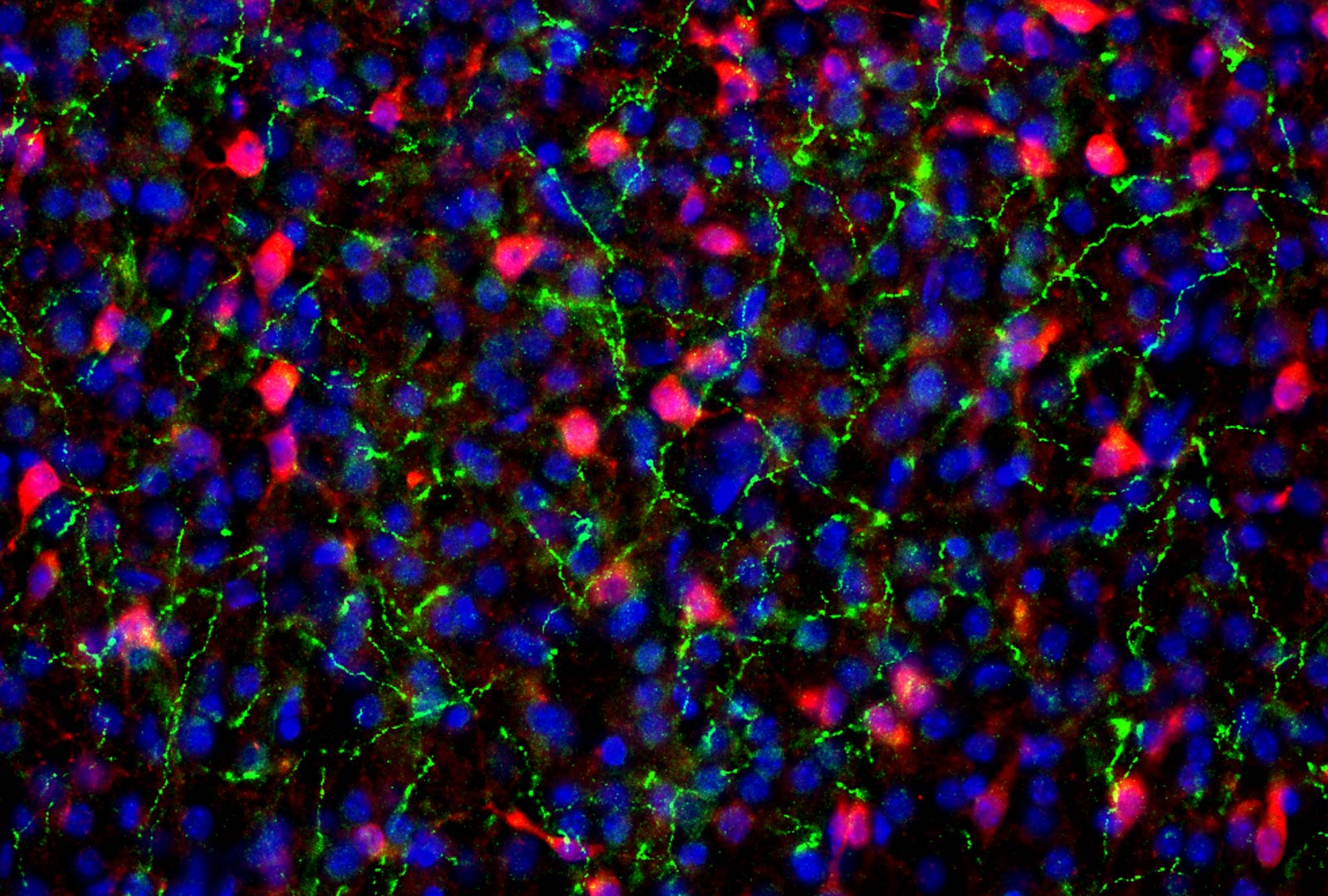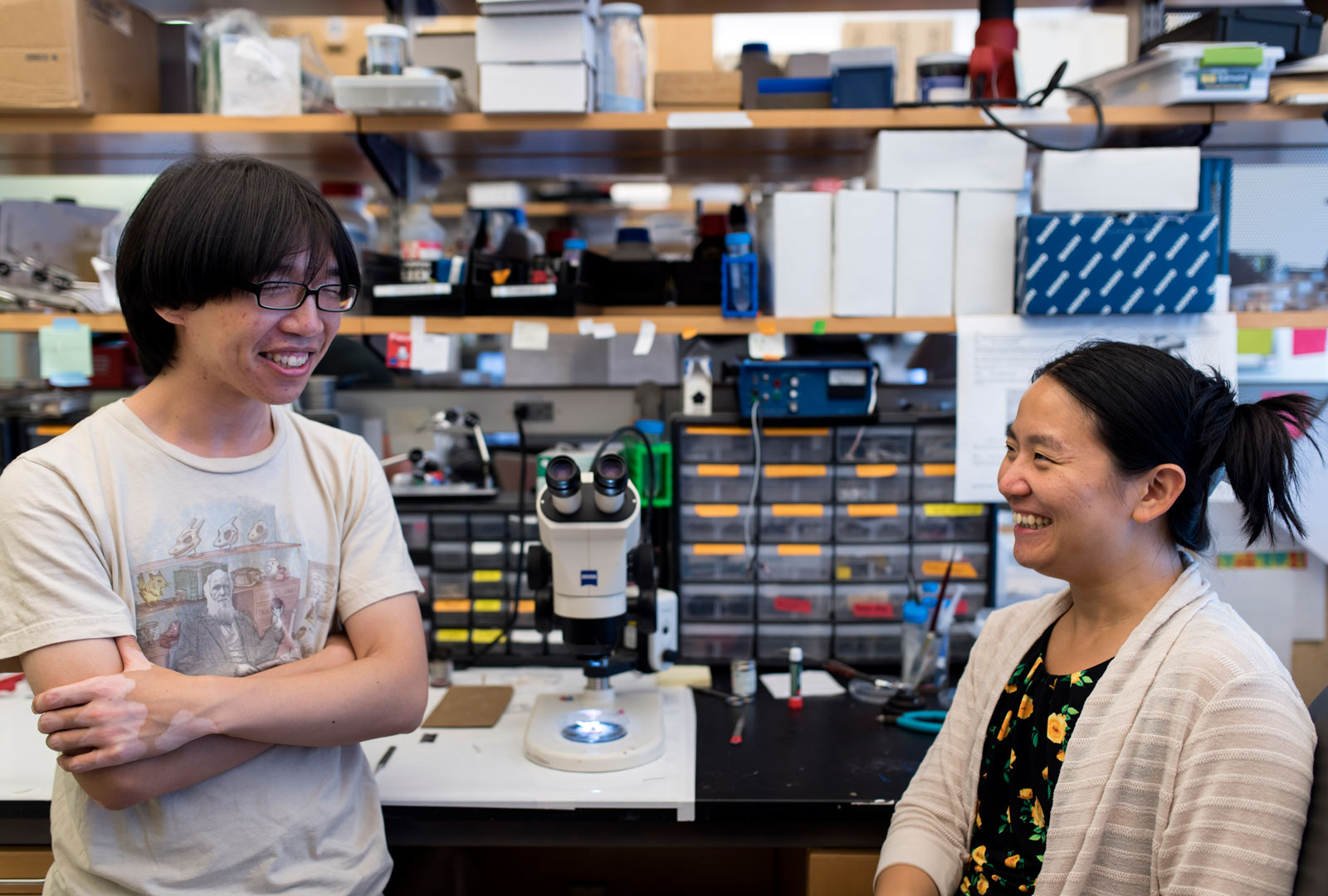
Oxytocin U19 BRAIN Initiative Grant
The Oxytocin U19 BRAIN Initiative Grant is a National Institutes of Health (NIH)–sponsored project led by investigators in NYU Langone’s Department of Neuroscience. The goal of this collaborative project is to achieve a better understanding of how the neuropeptide oxytocin controls social interactions, such as maternal or aggressive behavior, within a specific context or environment.
This grant is led by the laboratories of four of NYU Langone’s leading investigators and supported by state-of-the-art core facilities that are overseen by NYU Langone scientists. Much of our data and tools are publicly available to foster collaboration with other institutions so that we can solve one of the brain’s most interesting and complex mysteries.
Project Background
Oxytocin is a hormone synthesized and released from the hypothalamus. While oxytocin is one of the best-studied physiological modulators of behavior, specific questions about the location and timing of its release, the influence of oxytocin on synaptic transmission and neuronal firing, and the specific brain regions it acts upon all remain unanswered. This gap in our knowledge of oxytocin is partially due to an incomplete understanding of the complexity of oxytocin action, which is thought to vary with behavioral state, experience, and brain structures. In addition, until recently there has been a lack of tools to study oxytocinergic neurons, including specific antibodies to faithfully label oxytocin receptors. Our scientists are leaders in this area and have published high-impact papers that are already unlocking some key mechanisms to describe the action of oxytocin.

Our Goals
We believe that a better understanding of the endogenous action of oxytocin is essential to unleash the therapeutic potential of this highly evolutionarily conserved neuropeptide. Advancing our understanding of oxytocin signaling requires cross-level and interdisciplinary studies by several independent investigators with overlapping interests. This undertaking also requires the technical capability to analyze oxytocin signaling across molecular, physiological, and behavioral levels.
To these ends, the Oxytocin U19 BRAIN Initiative Grant at NYU Langone consists of four interrelated projects supported by four core facilities: the Oxytocin Antibody Production Core, the Behavioral Optogenetics Core, the Data Science Core, and the Administrative Core. This collaboration is part of an overarching goal to achieve a robust understanding of oxytocin modulation of socio-spatial behaviors, which we define as social interactions within a specific context or behavioral environment.
Our projects and cores use cutting-edge techniques and large-scale methods to provide an in-depth description of the neural circuitry for maternal socio-spatial behavior.
